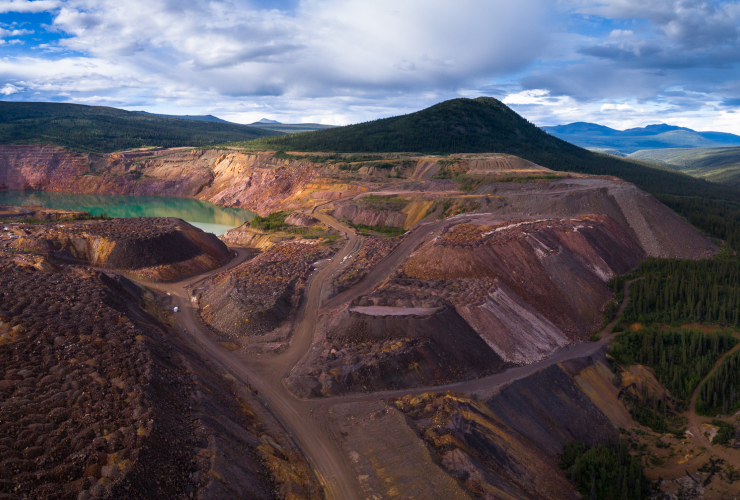Bill C-69, which will govern federal environmental assessment in coming years, has been proceeding through Parliament with striking media indifference, even though important issues are at stake.
One issue is the process of appointing members to the review panels responsible for assessing large projects under federal authority, like the recent Energy East oil pipeline project.
Politics can be a main factor in choosing review panel members, as the proposed bill now stands. That is hardly compatible with the independence required in this function.
Bill C-69 provides for the minister of environment and climate change to name the members of the review panels for large projects falling under the purview, in the beginning of the assessment process, of the Canadian Environmental Assessment Agency.
The minister would name the chairperson and at least two other panel members (four for offshore exploration projects) in the case of energy projects regulated by the new Canadian Energy Regulator, the Canadian Nuclear Safety Commission or an offshore petroleum board, like the one formed with Newfoundland and Nova Scotia for exploration projects in the Gulf of St. Lawrence.
In these three cases, a minimum number of members would be named in consultation with the relevant ministers responsible for the energy regulator, the nuclear safety commission and the offshore petroleum boards based on lists proposed by these agencies, generally perceived as close to the energy industry.
Yet we know that the government, of which the federal minister is a part, is not neutral about large projects. The latest demonstration of bias, notwithstanding its political legitimacy, is the federal government’s systematic promotion and offer of financial support for the Kinder Morgan Trans Mountain pipeline project.
Independence and credibility
The most fundamental requirement for the success of a credible exercise of public consultation and assessment lies in the confidence of the public in the impartiality of the process. In addition to a process that is clear, equitable and predictable, the process of appointing panel members forms the foundation of their independence and credibility. Clearly, the nomination process proposed by Bill C-69 deviates from these baseline requirements.
It is not enough that the chairperson of a review panel and its members be independent from the project proponent. They must also be sheltered from all possibility of collusion, complicity, professional or cultural partiality, and partisan politics.
It’s not an indictment of a given government to recognize that they have positions on major projects and that ministers publicly promote projects while hearings are ongoing. But there must be a counterweight to this freedom of government to legitimately support a project. And this counterweight is neutrality, independence, and the rigour of the environmental assessment process and review panels that must be above all suspicion.
This independence affirms itself at two specific moments. First, when individuals are selected as qualified for appointment to panels. Second, when individuals are appointed to assess a given project.
In Quebec, the new Environment Quality Act enabled the development of a new process for selecting potential candidates, entrusted to a tripartite committee that includes a representative of the public. Additionally, for more than 40 years the choice of commissioners responsible for assessing a project has not been in the hands of government or the Minister of Environment, but rather entrusted to the president of an independent agency, the Bureau d’audiences publiques sur l’environnement (BAPE). In the latter case the president chooses from among the permanent commissioners and the list of additional commissioners, those who seem most qualified to conduct a public consultation and report with unimpeachable credibility.
Who should make appointments?
Under Bill C-69, the minister and the president of the Impact Assessment Agency of Canada have the power to appoint review panel members. It would have been preferable to confer this responsibility exclusively on the president of the Agency. But such an improvement would risk putting the Agency and its review panels in some delicate situations. Indeed, a review panel could legitimately have to criticize the work of the Agency for its management of assessment preparations before the review panel stage.
In Quebec, occasionally BAPE inquiry commissions must address in their reports mistakes in the preliminary steps of assessment that implicate the Ministry of Sustainable Development, Environment, and Climate Change. Most people would agree that federal review panel members would be ill placed to critique the institution that appointed them.
It’s never desirable to unnecessarily expand state structures, particularly when they are redundant with existing functions. It’s all the more so when there is already a federal institution known for its independence and credibility: The Commissioner of the Environment, in the office of the Auditor General.
If the Commissioner of the Environment has all the necessary independence to surround itself with specialists capable of rigorously interpreting federal environmental politics, it is surely equally capable of choosing individuals fit to proceed with competence and independence in a depoliticized assessment of large energy developments, or other projects. This is the direction that the authors of C-69 should move toward, to ensure that future environmental assessment processes demonstrate the kind of flawless credibility that the public wants.
Louis-Gilles Francoeur is former vice-president of the Bureau d’audiences publiques sur l’environnement and former journalist at Le Devoir. A French version of this text was published in Le Devoir.
The following shows that
The following shows that there is something rotten about appointments to the National Energy Board. Board members act as judges.
a) Board members are required to have ‘High ethical standards and integrity’. Decisions that the Board members make can have serious financial implications on the companies they regulate. Thus the Board members must not take advantage of this information. I ask then “why is Jacques Gauthier, who Radio Canada reported was convicted of insider trading, a Board member”? I would expect a judge guilty of such an offence to be dismissed. Instead, as I understand it, he was reappointed at the end of the last government’s term of office.
b) Board members are required not to have any conflict of interest. Steven Kelly applied for a position as Board Member (I presume this to be so), knowing full well that this would put him in a position of conflict of interest; this is not what I would describe as displaying a high ethical standard. Furthermore, he accepted the position. Did he inform the Minister of the conflict? If not this was an ethical failure. If he did there was a failure on the part of the Minister. Did the members of the NEB protest the appointment? They should have.
c) Two Board Members, Lyne Mercier and Jacques Gauthier “participated in a series of private meetings with “various Quebec constituencies - mostly but not exclusively from the pro-pipeline corporate sector”. One person consulted was Jean Charest, a lobbyist for the pipeline company. Do judges hearing a court case privately consult with persons they choose about the case? I think not. If they did they should be dismissed.
d) The Board Chair, Peter Watson, allowed the above secret meetings to take place regarding a matter before the Board. A judge should be dismissed for such conduct. As well, Mr. Watson should have protested the appointments of Gauthier and Kelly for their ethical failings, and resigned if they were forced on the Board. He did not, and I would like to know how he justified continuing on the Board.
The above is extracted from my submission to the National Energy Board Modernization Expert Panel in February 2017, which includes the relevant references.
I agree wholeheartedly with
I agree wholeheartedly with the content of this article. Independence and integrity are the hallmarks of any agency constituted to examine, monitor and pronounce on the bona fides of projects which affect health, safety and environmental security and sustainability.






Comments